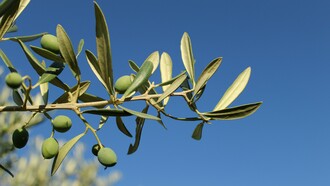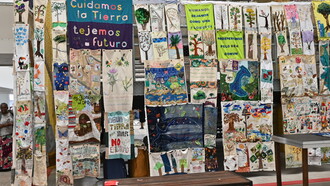If we are to believe Plato, at the trial of Socrates, Socrates himself very skillfully—some might even say arrogantly—presented his defense. He was accused of corrupting the youth and believing in some strange demonic forces, of making bad things appear better. The reason for this conviction, however, is not so much related to the content of the indictment but to what Socrates had done to the influential people of his time. Socrates was searching for wisdom; more importantly, he wanted to question whether people who were generally considered wise were truly wise. He included three groups of people in his quest: politicians and public officials, artists (poets), and craftsmen (today we might also say experts). Politicians quickly proved to be anything but wise. For Socrates, they only pretend to be wise, while wisdom is not in them. Cunning, yes, but not wise. Guided by laws that they subject to their own interests, politicians do not possess a love for truth and wisdom—the worst kind of relationship toward wisdom and knowledge.
The second group for him was poets (artists). Endowed with divine inspiration, one might conclude that this group is indeed wiser and knows the truth and the secrets of the universe. But for Socrates, this group, in their inspiration, was not wise but guided by intuition. Wisdom for artists is not as important as the feeling during and after creation.
The last group was craftsmen. For Socrates, craftsmen were not wise because, although they possessed specific skills and knowledge in their craft, they often believed that their expertise in one area meant they were wise in other, unrelated fields. Socrates observed that many craftsmen, due to their skill in their profession, mistakenly assumed they understood other aspects of life or philosophy, which to him was a sign of ignorance, not wisdom. For Socrates, true wisdom comes from being aware of one's own ignorance and recognizing one's limitations, not from technical skill in a narrow field. But the true death of wisdom for this category was not the narrow field of expertise but the arrogance to achieve status in other areas about which they know nothing, riding on the wings of wisdom in that narrow field. Thus, even what these experts knew fell into the shadow of arrogance in (not) knowing everything else.
What can be observed in this Platonic writing is an incredible connection with today's world. Politicians are still politicians, in all their arrogance; artists are still artists, imbued with spirit but detached from the world—even when they are not; experts, craftsmen, and scientists are greatly cursed with egocentrism and the arrogance of status that distances them from wisdom.
As one of the main examples of the latter, we can include Elon Musk—the technological and economic genius of our time. From various sources, Elon Musk's genius has been questioned; different media have analyzed whether he is truly a genius. Without a doubt, he is a genius in the field he occupies—he is one of the most significant figures in the contemporary technological race, setting or chasing the standards of economic and technological development. Of course, this is easier if your start is less risky and enriched with economic capital. But that's the Matthew effect (Merton)—individuals or groups who already have advantages or resources continue to receive even more, while those with fewer resources fall further behind. The name comes from a biblical verse in the Gospel of Matthew: To those who have, more will be given, and from those who have nothing, even what they have will be taken away. No matter to that, Elon Musk proved a genius. However, Elon Musk is a genius but not wise.
Our argument follows Socrates. Although Musk, through his genius in certain areas of reality (economics, technology), has created a certain level of reputation, that reputation has plummeted into the arrogance of thinking that this genius translates into every sphere of reality—including the socio-cultural one. His political speeches and one-sided views and values (about which one can read almost daily) have shown that Elon Musk thinks he is wise and that he knows, but the very fact that he is so convinced he knows better than other people on matters of values or political processes makes him less wise, if at all. Through his exposition and insistence on expanding his "craft," he has discredited even what he knew how to do. The great has become small in the belief that he knows but does not. Socrates, in that sense, would be much wiser because Socrates did not claim to know what he did not know.
This brief analysis tells us that genius in the modern world is not enough—even though it is imposed as such in the spirit of accelerated cultural capitalism. A genius can harm both himself and others if he is filled with pride and arrogance in areas about which he knows nothing. Humility toward knowledge is the only step forward out of this vicious circle. Knowing what we know but knowing ignorance is the basis of human existence is the true virtue. Only in this do we open space for ourselves for advancement and the development of our own intellect, spirituality, and wisdom. Knowledge and wisdom are therefore very paradoxical. We become wise only when we realize that we are not particularly wise, when we leave behind the arrogance of our own selfhood and accept that we are part of a dialectical process of fulfilling the human debt.
Therefore, the socio-cultural and political views that surround Musk (whether they follow the economic logic of his thinking or "just" the cultural one), in the spirit of self-centeredness, ideologically accuse those with opposing views while failing to see the ideology in their own positions. The danger is particularly great if there is that craftsman's arrogance of wisdom—where being wise in one area leads us to think we are wise in another. Thus, in the awareness of my own insignificance, Elon Musk should be called upon to accept his own ignorance, his lack of wisdom, so that both he and the world can open up space for personal and collective development.















